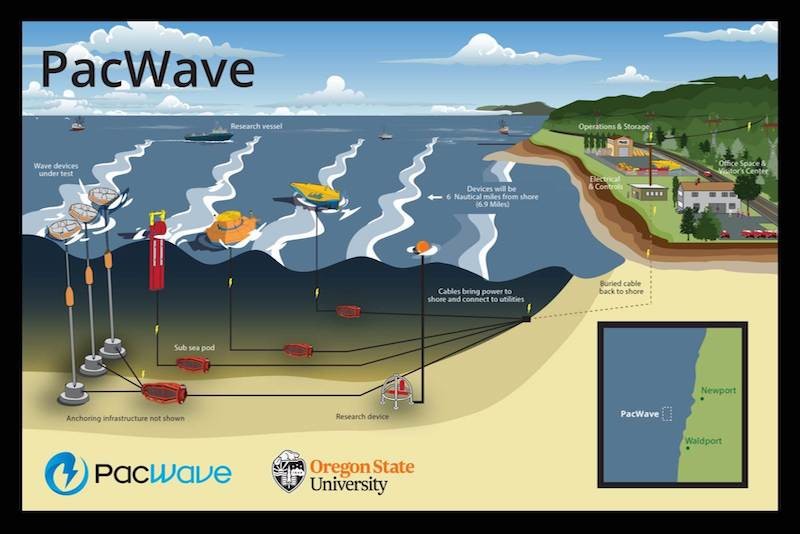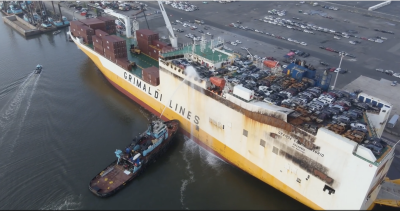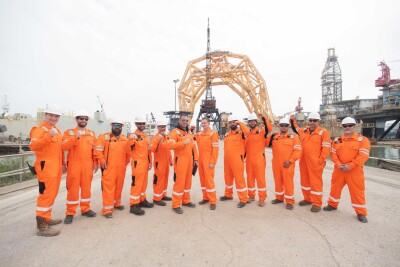The Bureau of Ocean Energy Management announced yesterday that they have issued a lease for the first wave energy research project in federal waters off the U.S. West Coast.
This lease represents another step forward in achieving the Biden administration’s goals to address climate change and promote offshore renewable energy production.
“This is the first time a lease has been issued to support the testing of wave energy equipment in federal waters off the U.S. West Coast,” said BOEM Director Amanda Lefton. “Ocean waves contain a tremendous amount of energy, and this opportunity offers exciting potential to demonstrate the viability of wave energy technology and expand the nation’s renewable energy portfolio.”
The federal marine hydrokinetic energy (MHK) research lease was offered to Oregon State University (OSU) for the PacWave South project, a proposed open ocean wave energy test center, to be located approximately six nautical miles off Newport, Ore. The project area is approximately 1,696 acres or 2.65 square miles.
Marine hydrokinetic technology harnesses energy from ocean waves, tides and currents, and converts it into electricity to power our homes, buildings and cities. Wave energy converters that will be tested at PacWave South are floating or underwater devices that are moored to the seafloor and capture energy from the moving waves.
The project will consist of four test berths to support the testing of up to 20 wave energy converter (WEC) devices, with an installed capacity not to exceed 20 megawatts, to demonstrate the viability of wave energy. A WEC device converts the kinetic and potential energy associated with moving ocean waves into electrical or mechanical energy.
Lease issuance by BOEM is a prerequisite for a license from the Federal Energy Regulatory Commission (FERC), which is the federal agency that would approve project construction and operations. The PacWave research lease is the first MHK lease to be issued off the West Coast under the joint BOEM-FERC authority over marine hydrokinetic projects on the U.S. Outer Continental Shelf (OCS), and the agencies will collaborate closely throughout the leasing and licensing processes.




.png.small.400x400.png)
